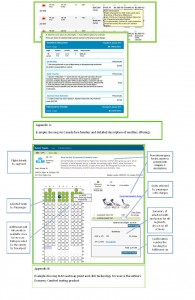Atlanta, 2012-10-24 — /travelprnews.com/ — Travelport welcomes open engagement with IATA on its New Distribution Capability (NDC) initiative to ensure an effective and efficient method for delivering supplier content to all participants in the travel supply chain. In this regard, Travelport has consistently maintained that standards are an important aspect of the technology landscape in that they have the capacity to greatly improve the product offering and the customer experience. However, these standards need to fairly and equally represent the needs of all participants in the end-to-end travel supply chain.
In developing these conceptual standards, IATA recognizes that its own existing standards for the distribution of airline content do not offer the opportunity for airlines to differentiate their products and communicate value to and through the travel agency channel – a very important goal for most airlines. For these standards to be effective, more work needs to be done and open dialogue will be paramount to its success. At this time, much of the IATA NDC statement appears only conceptual in nature, based on high level principles that do not necessarily incorporate the input of all the critical components of the travel value chain from supplier to travel agent to consumer.
To that end, Travelport already delivers many of the proposed capabilities and, along with the rest of the industry, remains committed to engaging to turn these principles into deliverable, practical standards that meet the needs of all participants in the end-to-end travel supply chain. We hope that IATA intends this as the beginning of an engagement with all key stakeholders, which would clearly drive a better result for all parties.
We call on IATA to address the concerns raised by trade bodies such as the American Society of Travel Agents, the Business Travel Coalition and the Guild of Business Travel Agents and demonstrate a real collaboration across the value chain, including GDSs and the travel agency community.
In turn, Travelport remains steadfast in its commitment to enabling comparison shopping (fundamental to serving the best interests of consumers) at the core of its solutions, allowing travel agencies to provide an excellent and highly transparent product and service to their clients using the Travelport GDS. As airline products become more complex, so does the challenge of comparison shopping, but Travelport’s technology enables our agencies to both understand and compare carrier products in an efficient manner.
As stated previously, Travelport sees its role as helping enable airlines to sell to and through travel agents and other intermediaries in new and dynamic ways to support top line revenue growth for airlines, by leveraging existing and new technologies that it has developed and which are already live and operational. Travelport’s existing technologies and ongoing solution development provide an innovative retail platform, allowing airlines to target offers to individual travelers and enabling a better, more personalized shopping experience for consumers.
Following are real examples of how this is operating today:
- Travelport has worked closely with Air Canada to enable support for all of their products through both our traditional GDS channel and AC’s API (Application Programming Interface). As a result, Travelport customers can access any and all products sold by AC in whatever manner they prefer. Indeed, during a session on NDC at the IATA World Passenger Symposium last week, Keith Wallis of Air Canada endorsed our partnership and publicly recognized our ability to sell Air Canada’s product the way they would like. [Appendix A].
- KLM Economy Comfort seating uses the standards defined by IATA and ATPCO, combined with Travelport’s own approach to offer a user experience that compares favorably with the carrier’s own website. This solution is implemented and available now. [Appendix B]
- With other carriers, Travelport does the same through an API, assisting Easyjet, for example, to sell all of its product features, fares and a-la-carte options, seamlessly and efficiently via Travelport agents. This solution is also available now.
In summary, Travelport is ready and willing to put new technologies to work with all airlines that are interested in partnering to achieve top-line growth, and looks forward to engaging with IATA should they be open to working collaboratively to find solutions that work for all key stakeholders in the value chain. Travelport is committed to a pro-competitive and pro-consumer marketplace where travelers can shop, compare and buy travel in whichever channel they choose and we will continue to invest in market leading technology to facilitate this and to engage constructively with both travel suppliers and travel agencies for this purpose.
# # #
Note to Editors: [See Appendices below]
About Travelport (www.travelport.com)
Travelport is a broad-based business services company and a leading provider of critical transaction processing solutions to companies operating in the global travel industry.
With a presence in over 170 countries, approximately 3,500 employees and 2011 net revenue of $2.0 billion, Travelport is comprised of the global distribution systems (GDS) business, which includes the Galileo and Worldspan brands and its Airline IT Solutions business.
Headquartered in Atlanta, Georgia, Travelport is a privately owned company.
Follow Travelport on Twitter at http://twitter.com/Travelport
Media Contacts
Jill Brenner
Travelport – The Americas
E-mail: jill.brenner@travelport.com
Kate Aldridge
Travelport – EMEA and APAC
E-mail: kate.aldrdige@travelport.com
###


